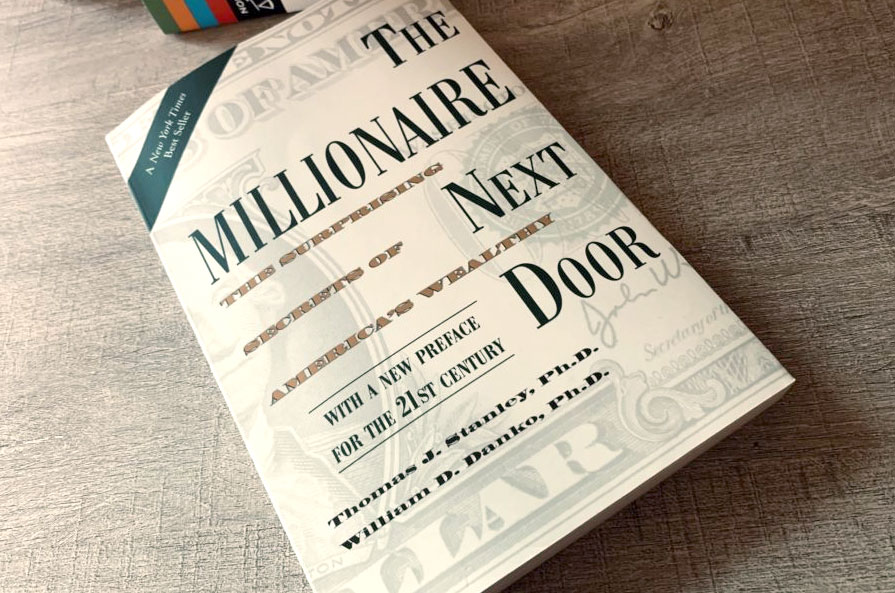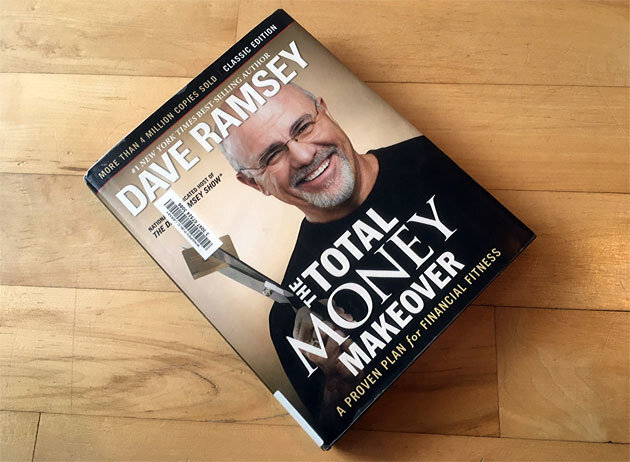Discover the surprising secrets of America's wealthy in 'The Millionaire Next Door.' Delving into the habits and characteristics of self-made millionaires, this eye-opening book challenges conventional beliefs about wealth and presents practical insights into building personal affluence. A game-changer for anyone aspiring to financial independence.
One of my biggest regrets remains not being too interested in reading personal finance books earlier, so I stumbled on The Millionaire Next Door just few years ago. Oh, what a difference it would have made if I read it back in 2002 for instance …
Anyway .. after getting my own small business up and running and not having the luxury of a monthly salary my ex-employer paid me, my interest in how to make and save money increased accordingly. So I started looking for some books to help guide me better into my new life and this one stood out from the many that were recommended.
The book written by Thomas J. Stanley and William D. Danko caught my attention in seconds and, even if I expected to be bored to death (I always HATED anything dealing with money / Economics), I read it in a heartbeat.
The Millionaire Next Door initial shock – they don’t act like millionaires
Just as any other regular Joe (so that I don’t say poor person), I always thought that people who have at least one million are living the good life. The media doesn’t do anything to contradict this image, everywhere you look there are people who are high-earners and dress to the part.
Celebrities, rich people, they all flaunt their insanely expensive cars, mansions that could easily provide accommodation to at least 200 people and jewelry costing more than all the apartments in our block, give or take 4-5 perfectly healthy kidneys for the black market.
Yes, I was that person who thought you should SHOW you have money. This is why falling into the so-called lifestyle inflation is not something new or foreign to my past: the moment I started earning more money, I wanted to let others know about it: got myself a new car, started purchasing only new clothing, started getting myself expensive gadgets etc.
Most people I know make the same mistakes: they judge people by the car they drive, clothes they wear and money they spend. If I had a buck for every time my folks told me “start dressing better, people think you’re poor”, just because I love my sport-casual style, I’d be one of the guys interviewed for a similar book and probably wouldn’t waste your time with my articles.
For me the first pages already made a huge change in my mindset. For the first time in my life I felt relived that it’s normal to care for one’s money more than about what others have to say. And it was just the beginning.
The millionaire next door has some very clear life principles
– it doesn’t matter how much you earn, what matters is how you handle your money. This is why many millionaires are not high-earners and many high-earners will probably never be millionaires.
– try to spend less than you earn – this is easily done if you keep a budget and are careful with your spending. It does take time to plan everything carefully, but it’s worth it on the long run.
– you don’t have to come from a rich family – there are many people whose net worth exceeds one million and they were either poor or coming from ‘regular’ households.
– avoid status objects – oh, this should be set in stone. Many people buy expensive items, move to expensive houses or just squander money to show their ‘status’. Many millionaires don’t bother with this, they buy good decent items and try to never buy ‘too much house’.
– school is important, even if many were college dropouts (or even worse) – in business, what matters most is to work and earn the money. Not all business men have high education, but most of them consider this is still important for their offspring, so they are considering this to be a priority.
– they make a clear distinction between an asset and a liability, something most of us don’t. We ‘invest’ in liabilities and usually don’t bother with assets, which turns out to be disastrous for many.
– many of their businesses are not ‘cool’ – we expect the millionaires to run all kinds of fashionable business. Many don’t. Their businesses make money though, which is more important than being able to brag with the ‘coolness’.
– they live well below their means – while we see crazy spending on the TV shows from various celebrities, the real millionaires (those who won’t succumb to bankruptcy 5 years later) don’t flaunt their richness. This allows their net worth to increase each year, while they’re debt free and living comfortable with their families.
– they save and invest – even if a disaster would strike them today, most millionaires have enough money to last them a lifetime, while many of us struggle with a job loss even if it’s just for 3-4 months.
The entire book is a real wake-up call for many of us, who never bothered save, who lived paycheck to paycheck, who carried debt and got ourselves into financial troubles just to show we’re doing well. In my case at least it clearly changed how I view my money and our lives. Sure, the book is not perfect and many of the financial details there don’t apply today, but the main ideas still remain and carry a lot of value.
I’m sure most of you read it, but, if you haven’t yet, The Millionaire Next Door should prove to be a pretty nice read.
Have you read the book? Do you agree with the main ideas? Has it changed the way you view your finances?





